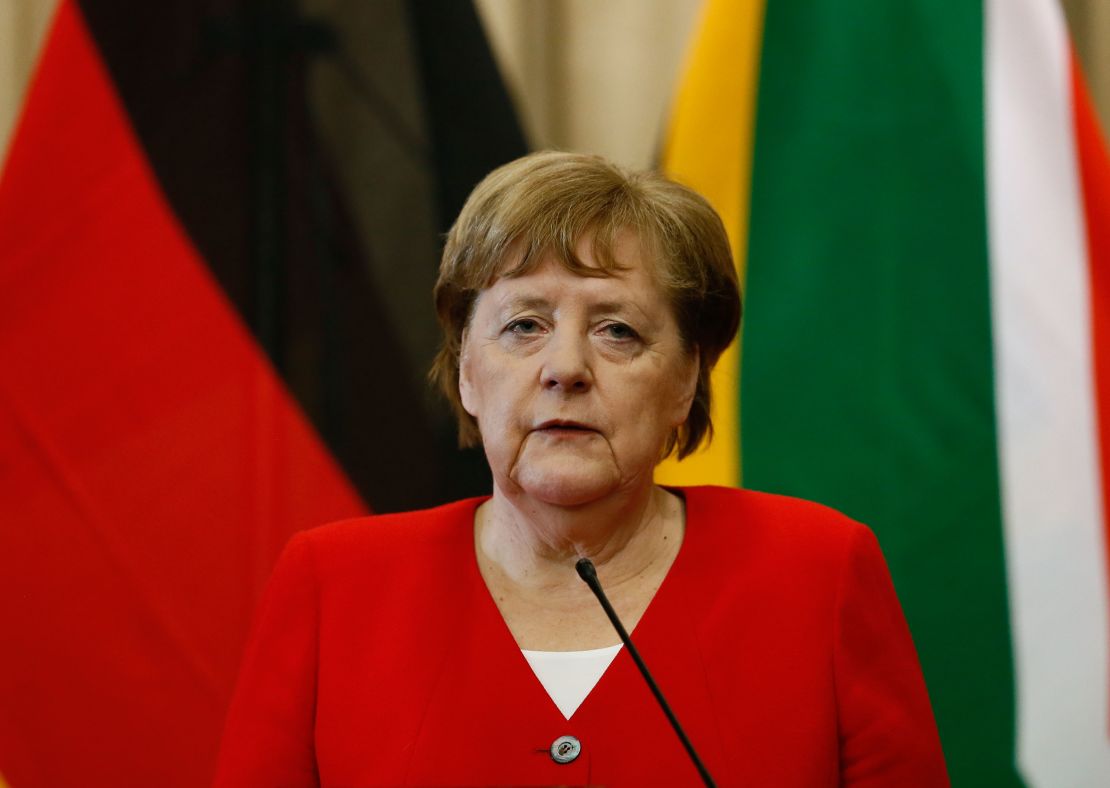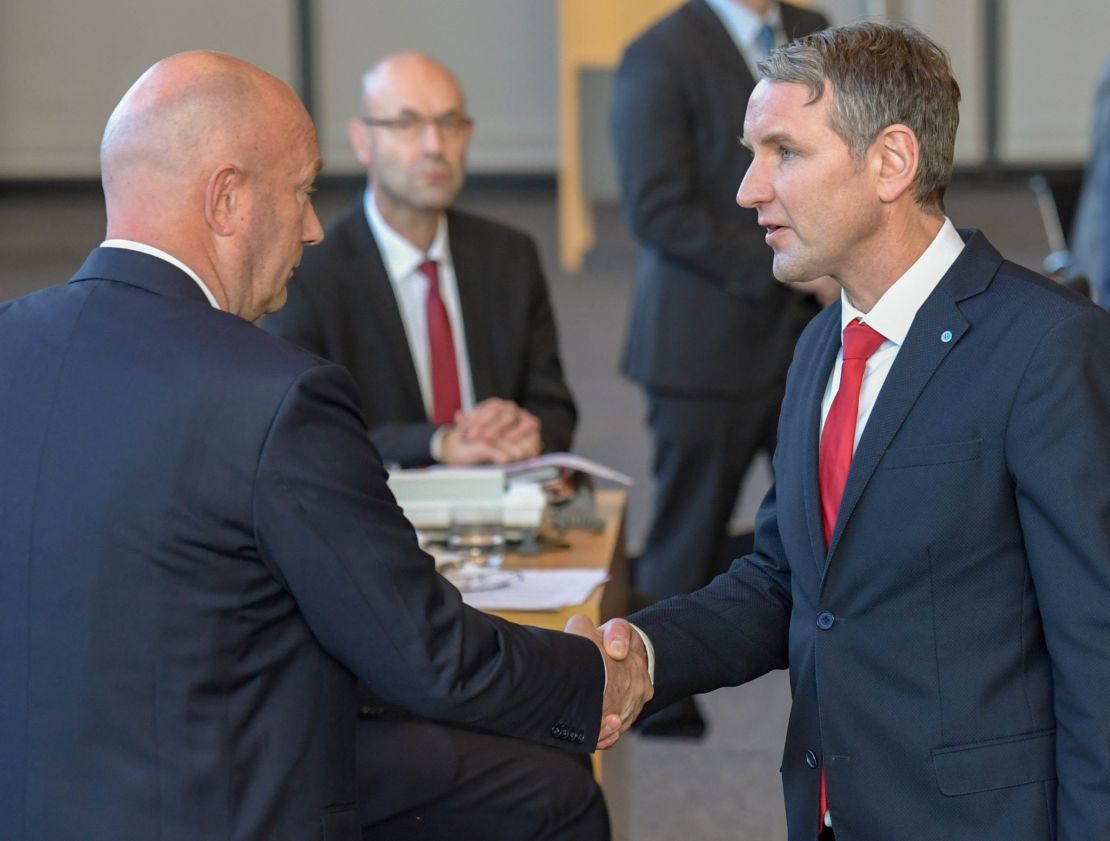Germany faced a political crisis Thursday after centrist parties breached a decades-old taboo and teamed up with the far-right Alternative for Germany in a regional parliament.
Chancellor Angela Merkel made it clear she was outraged after her party, the conservative Christian Democratic Union, voted with the AfD and the liberal Free Democratic Party on Wednesday to elect the FDP’s candidate Thomas Kemmerich as the state prime minister in the state of Thuringia in eastern Germany.
Merkel called the decision “unforgivable.”
The vote sparked protests and near universal condemnation from the national leadership of the parties involved. In Erfurt, Thuringia’s capital, crowds gathered overnight in front of the State Chancellery. A number of people built tents and brought along sleeping bags, threatening to “camp against Kemmerich” until the decision is reversed. Thousands of people were also protesting in front of the FDP headquarters in Berlin.
Extreme parties have been kept out of mainstream German politics since the end of the World War II and the decision by the regional CDU and FDP sent shockwaves through the political establishment.
“It’s a very big deal … the consensus amongst democrats that there would be no cooperation with far-right parties ended yesterday,” Kai Arzheimer, a professor of Political Science at the University of Mainz, told CNN. “So it was a historic day,” he added.
Kemmerich replaced Bodo Ramelow from the leftist Die Linke party. Ramelow was widely expected to hold onto the role following his party’s victory in the Thuringia state elections in October.
However, Kemmerich’s tenure is likely to be short-lived. Following the protests and the criticism from the national party leaders, Kemmerich announced he would requests the dissolution of the state parliament, a move that would likely lead to new election.
The fact that the CDU and the FDP cooperated with the AfD in Thuringia, of all places, adds to the injury.
The AfD fraction in the state is known for its radicalism. It is led by Bj?rn H?cke, an anti-immigrant former history teacher who has previously called Berlin’s Holocaust memorial a “monument of shame.” He is considered an extremist by the country’s intelligence service. An administrative court in Meiningen ruled last year that calling him a “fascist” was not a defamation, because the description was “not based on thin air but in verifiable facts.”
“They are very radical in this part of the country,” said . “[H?cke] is also the leader of the hardline caucus within the AfD, which are pretty close to traditional German right wing extremism,” he added.

Outrage and protests
Merkel came out strongly against her party’s actions. Speaking during a visit to South Africa, the Chancellor called for the “unique” decision to vote with AfD to “be reversed, at least for the CDU.”
“It was a day that broke with the values of the CDU and now everything must be done to make it clear that this can in no way be brought in line with what the CDU thinks and does,” Merkel said. She said the CDU will not participate in any government formed by Kemmerich.
Christian Lindner, the federal chairman of the FDP, said he “would not be able to continue” if any part of FDP was to “work systematically with the AfD or accept dependency.” He called a special meeting of the party’s executive board on Friday.

Some critics and political commentators compared the vote on Wednesday to the events of 1930, when the center-right parties in Thuringia were the first in Germany to form a government that included the Nazi Party.
Ramelow, who was defeated by Kemmerich, posted a quote from Adolf HitIer from February 1930, in which the Nazi leader praised the party’s result in Thuringia. “We really are the decisive party today. (…) The parties in Thuringia, which previously formed the government, cannot raise a majority without our participation,” the quote read.

Arzheimer said this was not a far-fetched analogy. “Most of the time, such comparisons muddy the waters, but this is uncanny,” he said.
The vote on Wednesday didn’t come out of nowhere. Centrist parties, including the CDU, suffered major losses in the Thuringia’s state elections in October, while Die Linke and AfD surged ahead.
The rise of the AfD was phenomenal. The party more than doubled its share of voters since the last state election and came in second place after Die Linke.
CNN’s Sheena McKenzie contributed to this report.


